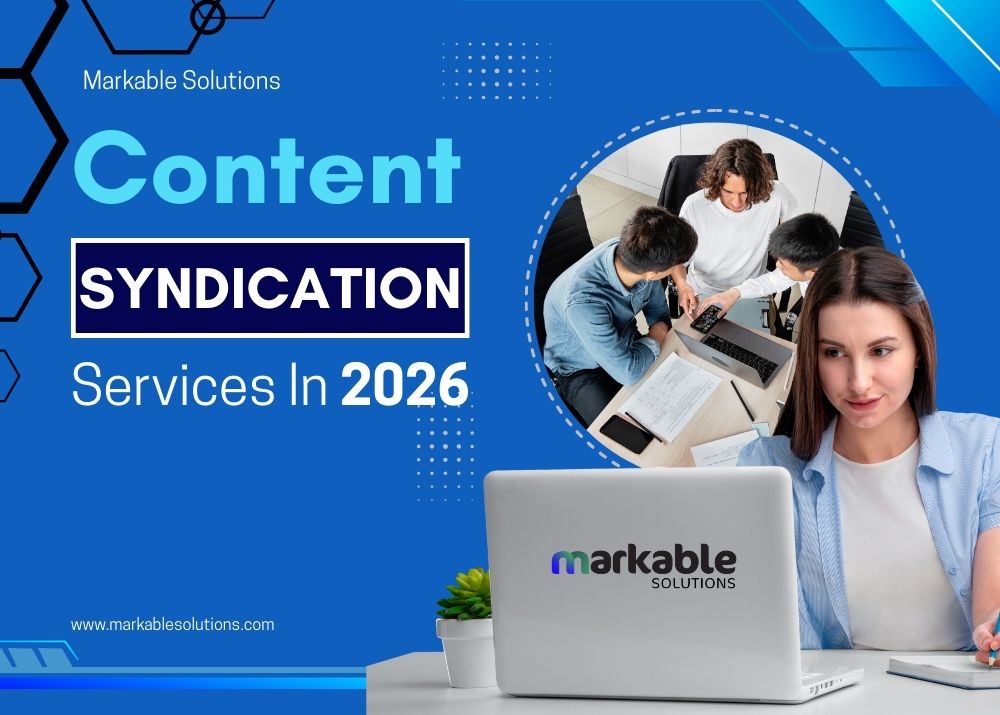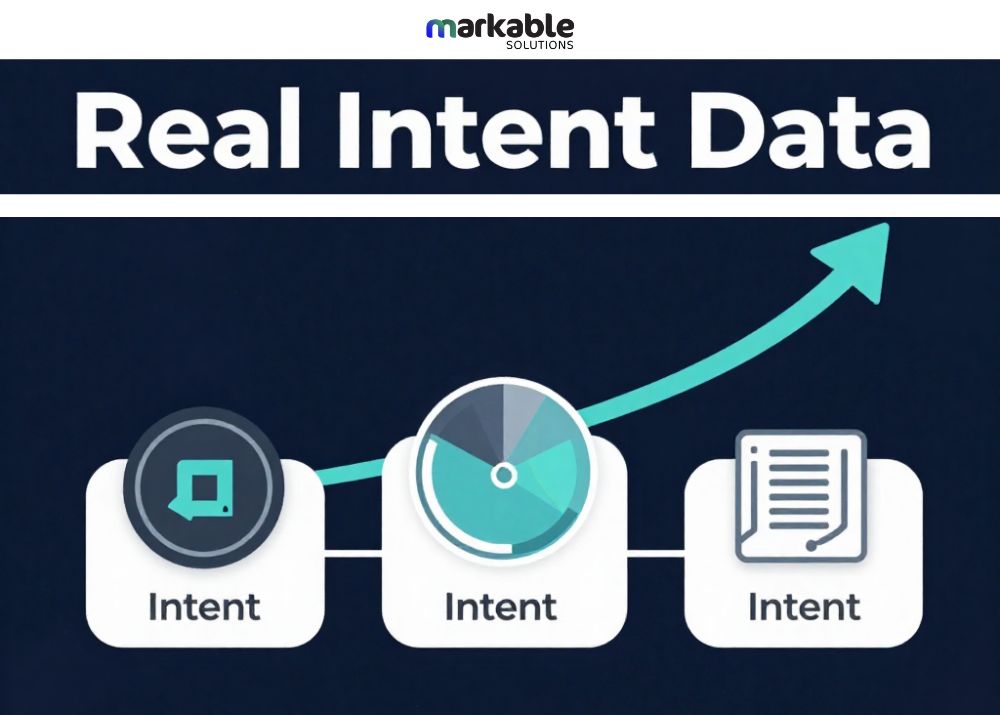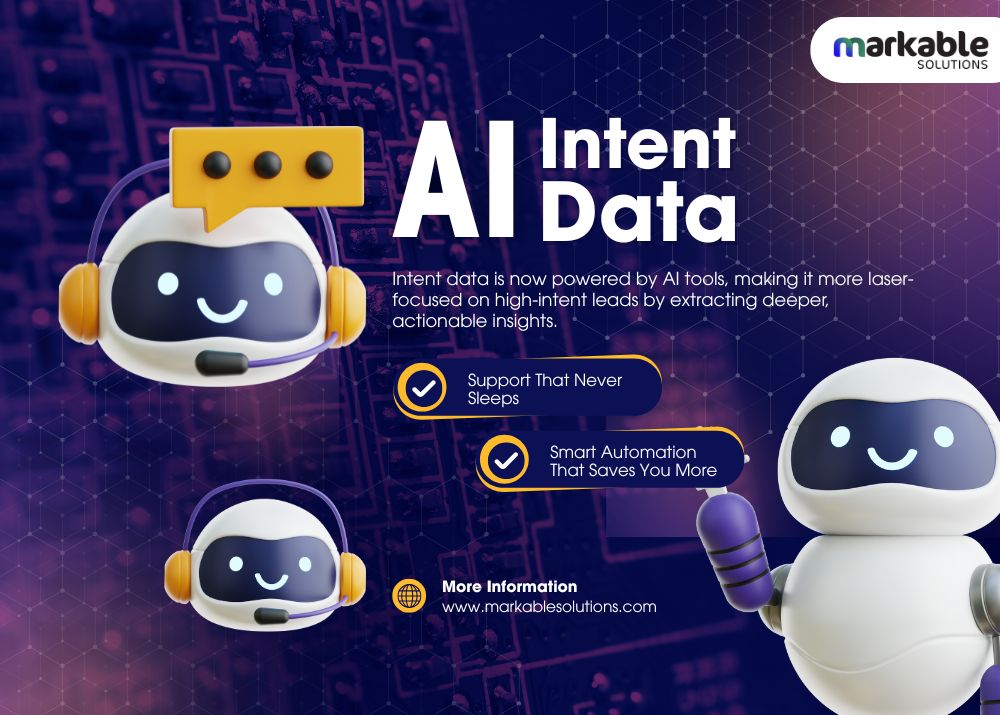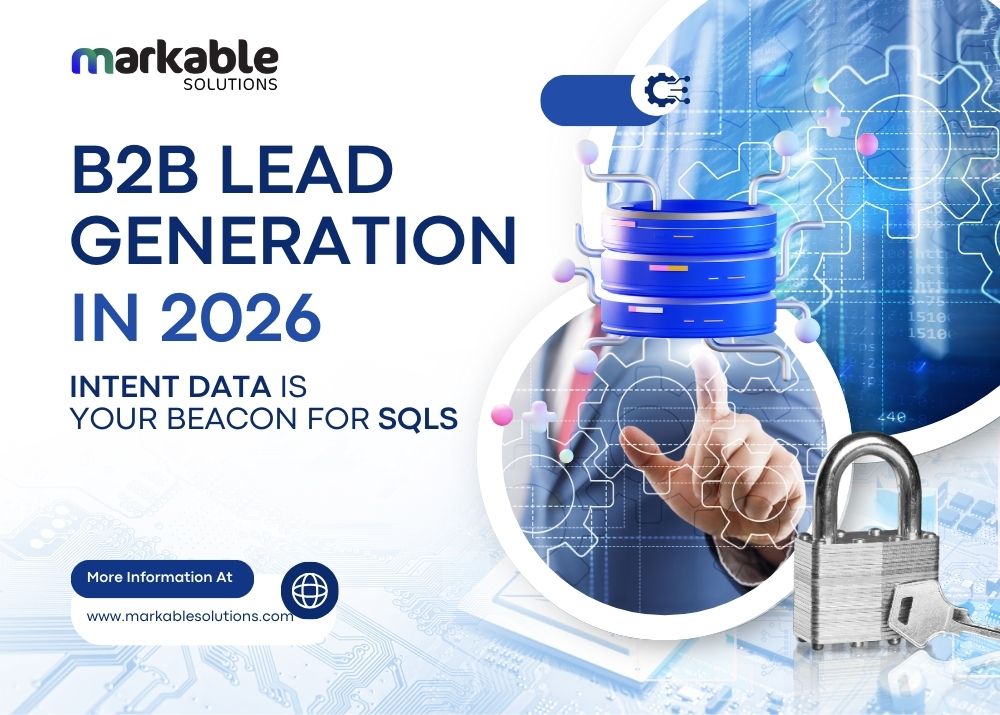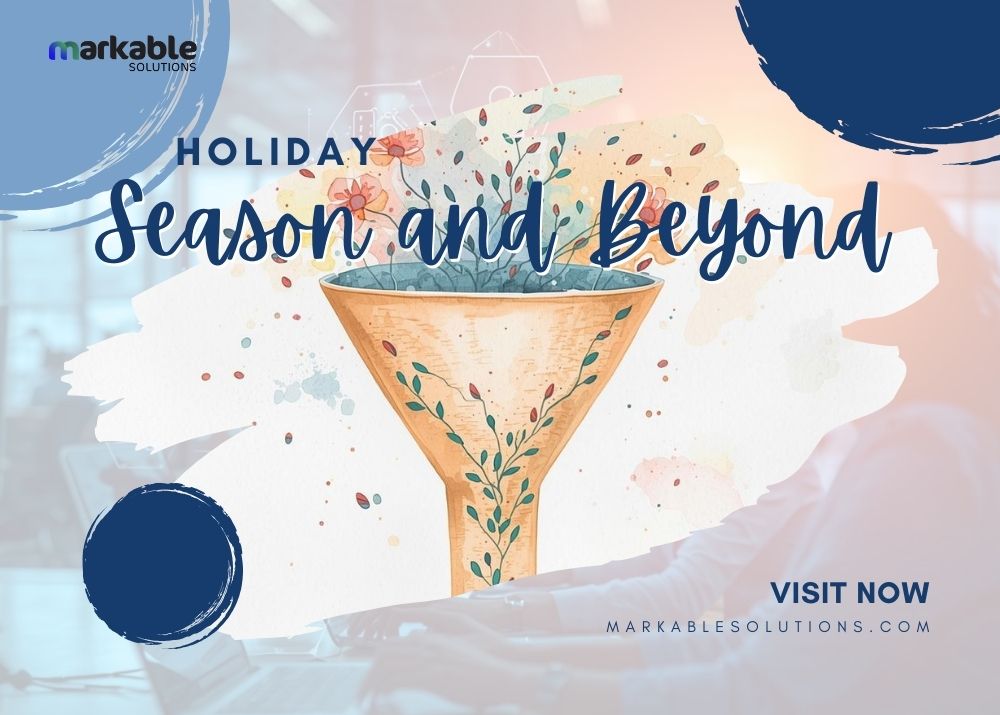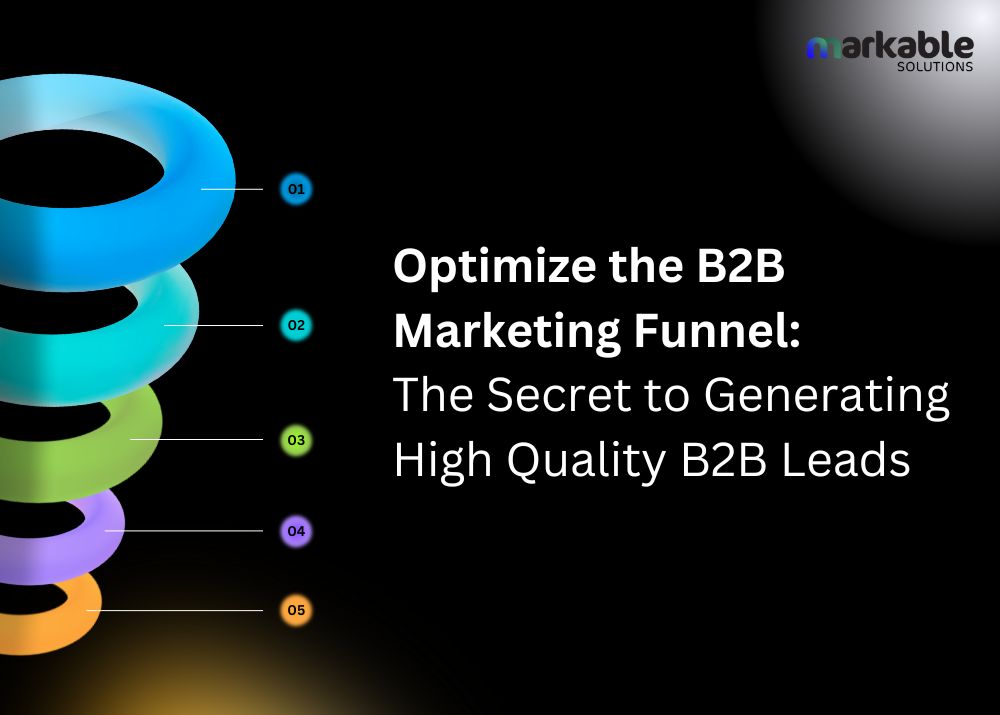
What is the B2B marketing funnel?
The B2B marketing funnel refers to the entire customer journey, represented visually, comprising three phases: the top-of-the-funnel (ToFu), where leads become familiar with your brand; the middle-of-the-funnel (MoFu), where prospects evaluate their buying decision; and the Bottom-of-the-funnel (BoFu), where leads make a buying decision.
What does B2B Marketing Funnel Optimization mean?
Optimizing the funnel involves a holistic approach towards marketing, providing deeper visibility into the entire customer journey. It’s about understanding how and why prospects enter the funnel, what triggers their engagement behavior, and how they interact with the brand, as well as the decisions they make. It maps the entire customer journey, helping businesses understand their prospects better and align their marketing and sales strategies more effectively for a higher conversion rate.
Why Optimizing the Funnel Matters?
B2B lead generation is a layered process. Businesses cannot expect to engage only top-of-funnel leads and expect a high conversion rate. They must understand where and how prospects are engaging with their brand, from demand generation to the final conversion of a lead. It is also a known fact that the B2B buyer’s journey involves a longer sales cycle comprising multiple stakeholders and is complex in nature. Optimizing the entire funnel will help drive high-quality B2B leads into the marketing funnel by providing greater visibility into the buyer’s journey and tailoring marketing initiatives to align with their expectations.
Top Benefits of Optimizing the B2B Marketing Funnel
- High-quality Lead Generation: Lead generation encompasses not only the quantity of leads that enter the pipeline and are nurtured for conversion, but also the quality of leads that ultimately determine whether they will actually convert. Quality also matters, along with the volume of leads generated. Optimizing the entire marketing funnel can help you navigate the complex B2B buyer journey. Businesses can identify leads that meet their ideal customer profile (ICP) criteria with high intent and prioritize them to get a high conversion rate.
- Reduced CPL: The cost per lead (CPL) has a bearing on the ROI of the marketing initiatives. Low CPLs enable companies to operate within their allocated budgets and achieve a high ROI. This is because funnel optimization allows businesses to allocate resources to high-intent prospects. Companies can target them with tailored marketing collaterals, and the sales team can nurture them using the right strategy to convert them based on their requirements and preferences. Optimizing helps to focus on market-qualified leads (MQLs) and sales-qualified leads (SQLs) that are ready for conversion.
- Increased sales velocity: Full-funnel optimization analyzes various sources of customer data and touchpoints, providing a comprehensive view of buyer behavior. It enables businesses to identify high-quality leads because optimization offers a better understanding of the buyer’s journey. They can nurture high-intent prospects to get a high ROI from their lead generation efforts. When marketers track the customer journey throughout the sales funnel, they can gain actionable insights to guide prospective buyers through the process, enabling them to make informed purchasing decisions. The business development team can then focus on these sales-ready leads and close them faster. The opportunities move more quickly through the pipeline, freeing up resources to tap new prospects and active buyers that enter the funnel.
- Improved Customer Experience: Optimizing the entire marketing funnel enables addressing customers’ pain points and catering to their specific needs. This not only increases sales conversions but also helps in delivering an enhanced customer experience. Customers feel valued and heard as companies can adopt a customer-centric approach towards B2B lead generation.
How to optimize the B2B Marketing Funnel?
- Advanced data Analytics: Let data be your North star; otherwise, you’ll get lost in your journey towards generating high-quality B2B leads. It’s essential to integrate data analytics to help you map the entire customer journey. The fact is that lead generation in the B2B industry is no longer a linear process. Prospects enter the marketing funnel, exit, and re-enter based on their requirements. They conduct independent research and select a few vendors to which they will engage for further discussion. These prospective buyers also expect personalization from businesses when they engage with them. They are already leaving footprints in the form of website visits and downloading gated content. They expect companies to customize their communication to their interests. An optimized funnel will ensure your business successfully caters to the personalization factor, engages buyers, and eventually increases conversion rates.
- Personalized content: Know your audience and serve what they want! Personalized content at each stage will resonate with prospects and encourage them to progress through the funnel, ultimately helping them reach the decision-making stage. Ensure your prospects get what they need. Blog visits can be encouraged to download gated content, such as whitepapers or playbooks. A chat with the sales representative can be encouraged to book a call by offering content on the business’s USP and a pricing comparison on products and services offered by competitors. It’s all about personalization in the content, and let the funnel churn high-quality leads for your business. Targeted marketing campaigns, such as account-based marketing (ABM), that deliver personalized content to niche or high-value accounts will yield high-quality B2B leads.
- Capture data: AI-powered technology collects customer data from various sources, including website visits, blog or landing page visits, downloads of gated content, attendance at webinars or live events, conversations with sales representatives, and booking of demos. Data helps capture prospect behavior from different sources, aggregates them, and provides insights into funnel optimization on a deeper level, identifying the touchpoints prospects have chosen to engage with the business. It helps understand where the prospective buyer is in the funnel and customize the marketing strategy to improve engagement and further the conversion process.
- Integration of AI-led technology: Full-funnel optimization refers to optimizing the entire B2B marketing funnel with Artificial Intelligence (AI) and data to ensure marketing strategies align with the buyer’s journey. The aim is to integrate personalization to achieve a high conversion rate across all stages of the buyer journey, rather than focusing on top-of-the-funnel (TOFU) leads. Businesses need a deeper evaluation of buyers at the middle of the funnel (MOFU) and the bottom of the funnel (BOFU). If your lead generation process generates fewer and not-so-great-quality leads, you’ve got a leaky funnel! You need to monitor how leads become reclusive at each stage and plug the gaps to ensure they reach the end of the funnel and ultimately reach the decision-making stage.
Final Thoughts
B2B marketing funnel optimization enables marketers to map the entire buyer journey, allowing them to adopt the right strategies and sales pitches to increase conversion rates. It helps in achieving sustainable growth and understanding the prospective buyers and the engagement they have had with your business. It helps to align the offerings with the buyer’s expectations.
Markable Solutions, a reliable B2B lead generation company in the U.S., has consistently focused on optimizing the entire funnel to generate market-qualified leads (MQLs) and sales-qualified leads (SQLs). Book a free consultation to learn how we can optimize your marketing funnel by combining our human expertise with tech-driven B2B lead generation operations. Our full-funnel strategy prevents leads from dropping off midway, ensuring a high conversion rate!

